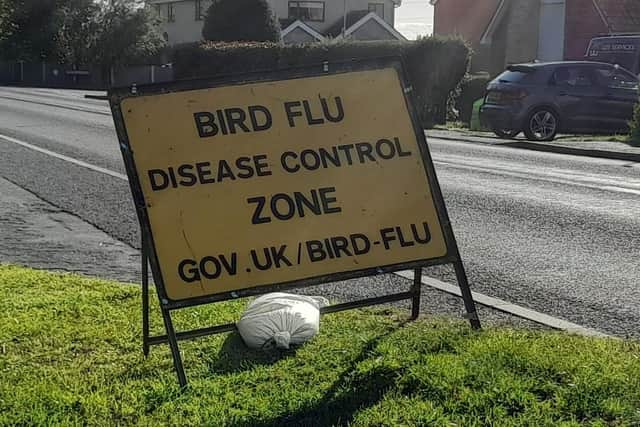Birds to be culled near Metheringham after avian flu confirmed


The highly pathogenic avian influenza (HPAI) H5N1 was confirmed in non-commercial captive birds on premises near Metheringham on Sunday, November 6.
A statement from the Department for Environment, Food & Rural Affairs and Animal and Plant Health Agency said: “All birds on the premises will be humanely culled.”
Advertisement
Advertisement
The agency has put in force a 3km captive bird (monitoring) controlled zone around the outbreak of the disease.
There are other control zones in force in the county after previous confirmations of the disease among poultry flocks at Ancaster, Boston, Woodhall Spa, North Cotes and two at North Somercotes.
Farmers are concerned as the disease tends to spread most during cold damp conditions, but the rate has accelerated quite early in the winter season.
A country-wide housing order is now in place for all captive bird owners to keep their birds indoors to minimise the spread of infection.
Advertisement
Advertisement
NFU chief poultry adviser Aimee Mahony said: “The NFU remains in close dialogue with both Defra and the Animal and Plant Health Agency on this issue and we are working to support any members affected by this case of avian influenza.
“I would urge all of our poultry members to continue to practise enhanced biosecurity at all times and to be vigilant for any signs of disease in their flock. I would also ask members of the public who keep birds such as chickens, geese and ducks to follow Defra’s biosecurity advice. All bird keepers have an important part to play in reducing the risk of avian influenza, not only to their own birds but also to the commercial poultry sector.
“It is worth reminding people that the risk to public health from the virus is very low and the Food Standards Agency has also made it clear that bird flu poses a very low food safety risk for UK consumers.”
The UK chief veterinary officer Christine Middlemiss said: “As we move into the higher risk period over winter, bird keepers should pay extra attention to the health of their birds. Anybody who suspects disease should report it to their vet or the APHA immediately. The best way to tackle this disease is for poultry keepers to ensure that they have strong biosecurity measures in place.”
Advertisement
Advertisement
Poultry keepers and members of the public should report dead wild birds to the Defra helpline on 03459 33 55 77.
Bird keepers should report suspicion of disease in their own birds to APHA on 03000 200 301.
Bird keepers should also familiarise themselves with the government’s avian influenza advice here.
